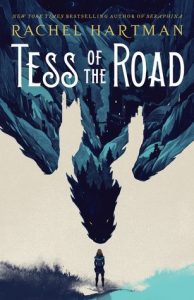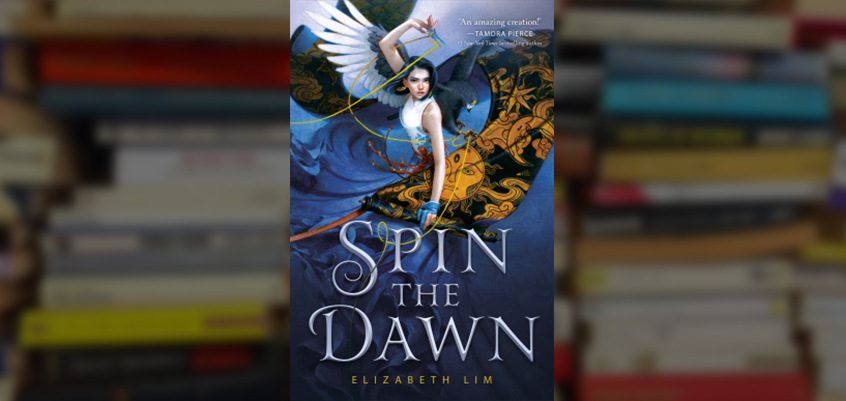★★★★☆
Tess of the Road was full of surprises. When I was sent the ARC, I honestly didn’t realize it was written in the world of Seraphina, which was fairly popular when it came out. I read Seraphina, but not its sequel, and I had hoped this book wouldn’t rely too much on that world since I barely remember the plot. Not that Seraphina was a bad book, mind you.
A quick-and-dirty summary: Tess is living in a courtly society where she is expected to be virtuous, quiet, well-mannered and pretty so that she can find a rich husband and settle down to have many babies. Tess is the kind of girl who wants a life of adventure, though, much to her mother’s dismay. She finds herself in a spot of trouble and ends up becoming her own sister’s maidservant at court. Don’t worry, though, she doesn’t stay at court for long — and you’ll soon be introduced to a world of humans, dragons and giant mythical serpents.
Which brings me to a quick comment on Rachel Hartman’s writing style. I saw a lot of comments online about how Tess of the Road seemed slow-going, or how it was “anti-climactic.” If you actually think about Hartman’s plot, this isn’t true — she just doesn’t write melodrama. Not that every other author does, but still. Hartman’s writing style is a bit detached, a bit matter-of-fact, though Tess’s story is more emotional than Seraphina (in my opinion). I personally enjoyed this writing style, as it was a little off-the-beaten-path for me.
As far as characters: Tess is, in my opinion, one of those main characters that people either love or absolutely despise. A lot of reviewers called her “unlikable” and complained about her thought process and about how she did or didn’t deal with family, friends, or herself. I actually liked Tess. I don’t necessarily agree with everything she did or said, but I really enjoyed her story and I thought she was fairly well-written. There was only one point in the story when I was like, “Wait… what? Why is she pretending this didn’t just happen?” But then my issue was addressed, and it was all smoothed over.
The secondary characters were all pretty good, too — one of them comes back at the end in a way I never would have guessed. Tess’s childhood friend is another well-developed character, and even the smallest characters along Tess’s journey were memorable.
This book toes the line between a carefree story about a young woman on an adventure and an emotional story about trauma and finding oneself. Tess has a grim backstory, and it went even further than I originally suspected, but the full brunt of it isn’t revealed in one go. It’s hinted at often, but peeled back in short bursts, as so not to make the story too heavy. This works well overall, though sometimes the heavy hinting and little emotional outbursts from Tess are a bit much.
If you’re wondering whether you have to have read Seraphina in order to understand the book, the answer is no. It would help you understand how the world works, how human-Dragon interactions work, how the government operates, and what the Quigtl are, but it isn’t absolutely necessary.
Overall, I’m giving Tess of the Road four out of five stars. I’d give it four and a half if we gave out half-stars, but we don’t. I truly enjoyed reading this story, and I would recommend it to anyone who enjoys adventure stories, coming-of-age stories, trauma survivor stories, fantasy in general, or stories with strong female main characters.



